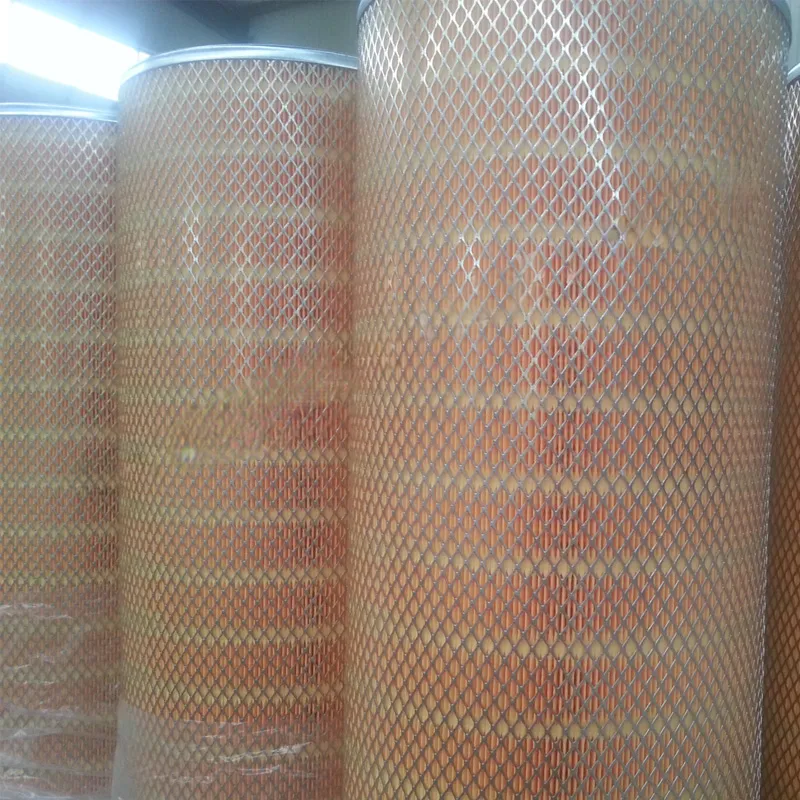 Tel:
+8615930870079
Tel:
+8615930870079
paź . 02, 2024 12:15 Back to list
High Efficiency Cartridge Filter for Dust Extraction Systems and Air Quality Improvement
The Importance of Fine Cartridge Filters in Dust Extractors
In various industrial and manufacturing settings, dust extraction systems play a crucial role in maintaining air quality, protecting workers' health, and ensuring compliance with environmental regulations. At the heart of these systems are fine cartridge filters, which are essential components designed to efficiently capture dust particles and other airborne contaminants. This article explores the significance of fine cartridge filters in dust extractors, their working principles, and their impact on operational efficiency and environmental sustainability.
Understanding Fine Cartridge Filters
Fine cartridge filters are specialized filtration devices made from various materials, including synthetic fibers, paper, or fiberglass. They are constructed in a cylindrical shape and designed to fit into dust extraction units, where they trap particulates as air passes through. The fine designation refers to the filter's ability to capture extremely small particles, often down to a few microns in size. This capability is vital for industries such as woodworking, metalworking, pharmaceuticals, and food processing, where harmful dust and particles can accumulate quickly.
Working Principles of Fine Cartridge Filters
Fine cartridge filters operate on a relatively straightforward principle as air laden with dust and other pollutants enters the filter, the filtration media captures the particles while allowing cleaner air to pass through. The effectiveness of a fine cartridge filter is determined by its filtration efficiency and air permeability, which are influenced by factors such as the filter material, design, and surface area.
Many modern fine cartridge filters incorporate multiple layers of filtration media, allowing for improved particle retention and extended service life. They can utilize a combination of mechanical and electrostatic filtration methods to enhance their efficiency. Mechanical filtration captures particles via size exclusion, while electrostatic attraction helps trap smaller particles that may otherwise evade capture.
Operational Efficiency
fine cartridge filter for dust extractor

The implementation of fine cartridge filters in dust extractors significantly enhances operational efficiency. By effectively removing airborne dust particles, these filters help maintain a cleaner work environment, reducing the risk of respiratory issues and other health problems for employees. This improvement in air quality can lead to increased worker productivity and fewer sick days.
Moreover, dust collectors equipped with fine cartridge filters operate more efficiently. When filters are clean and functioning optimally, the system requires less energy to pull air through the filters, reducing operational costs. Regular maintenance and timely replacement of filters are crucial to ensuring that dust extractors continue to perform effectively, preventing undue strain on the machinery and extending equipment lifespan.
Environmental Sustainability
In an era where environmental concerns are paramount, the role of fine cartridge filters in promoting sustainability cannot be overlooked. By capturing pollutants that would otherwise be released into the atmosphere, these filters help industries comply with stringent air quality regulations and reduce their environmental footprint.
Additionally, many fine cartridge filters are designed for recyclability or can be restored through cleaning processes, further minimizing waste. This aligns with the broader goals of sustainable practices, where businesses strive to balance operational efficiency with environmental responsibility.
Conclusion
The integration of fine cartridge filters into dust extraction systems is essential for enhancing air quality, protecting employee health, and promoting environmental sustainability. As industries continue to evolve and face stricter regulatory requirements, the demand for efficient filtration solutions will only increase. Investing in high-quality fine cartridge filters not only improves workplace safety and operational efficiency but also contributes to a more sustainable future. It's time for businesses to recognize the importance of these filters and prioritize their implementation in dust extraction systems to safeguard both their workforce and the environment.
-
Types and Applications of Air Filtration CartridgesNewsJul.28,2025
-
The Role of Gas Turbine FiltersNewsJul.28,2025
-
Mastering Air Filter Cartridge UseNewsJul.28,2025
-
Advanced Turbine Filters for Modern Gas TurbinesNewsJul.28,2025
-
Cellulose Air Filter Cartridge Advantages in Dust FiltrationNewsJul.28,2025
-
Cellulose Filters for Air Particle ReductionNewsJul.28,2025

 Email:
Email:





